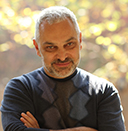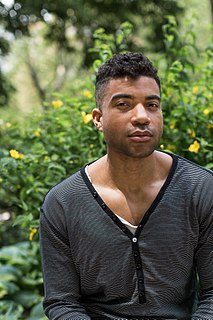A Quote by Bernice King
How do we navigate and process painful biases and conflicting emotions and press on to be sacrificial and suffer in the struggle? And what do we do with images and depictions that, known or unknown to those perpetuating them, may contribute to the impediment of human progress?
Related Quotes
If there is no struggle, there is no progress. Those who profess to favor freedom, and yet depreciate agitation, are men who want crops without plowing up the ground. They want rain without thunder and lightning. They want the ocean without the awful roar of its many waters. This struggle may be a moral one; or it may be a physical one; or it may be both moral and physical; but it must be a struggle.
It surely can be no offence to state, that the progress of science has led to new views, and that the consequences that can be deduced from the knowledge of a hundred facts may be very different from those deducible from five. It is also possible that the facts first known may be the exceptions to a rule and not the rule itself, and generalisations from these first-known facts, though useful at the time, may be highly mischievous, and impede the progress of the science if retained when it has made some advance.
Social progress means a checking of the cosmic process at every step and the substitution for it of another, which may be called the ethical process; the end of which is not the survival of those who may happen to be the fittest, in respect of the whole of the conditions which obtain, but of those who are ethically the best.
The most beautiful people we have known are those who have known defeat, known suffering, known struggle, known loss, and have found their way out of the depths. These persons have an appreciation, a sensitivity, and an understanding of life that fills them with compassion, gentleness, and a deep loving concern. Beautiful people do not just happen.
The images which the [press] photographer has filtered from reality, whether particular events or the anguish of human reactions to them, already bear a stamp of authenticity which the photographer is powerless to alter by one jot or tittle; the meaning of the objects, by a process of purification, itself becomes the theme of the work.
Making photographs that dealt with the understanding of who I am as a gay man and dealt with the process of accepting that, and also accepting what I'm into sexually, what sexually arouses me. So I was making these images not necessarily knowing what they were about, but just putting it out there - that mode of thinking or consideration of my own desires, and also the much larger conversation around images that deal with ideas of sexuality and how those images are distributed and then accepted or understood by whoever is viewing those images.
Modern man, seeking a middle position in the evaluation of sense impression and thought, can, following Plato , interpret the process of understanding nature as a correspondence, that is, a coming into congruence of pre-existing images of the human psyche with external objects and their behaviour. Modern man, of course, unlike Plato , looks on the pre-existent original images also as not invariable, but as relative to the development of a conscious point of view, so that the word "dialectic" which Plato is fond of using may be applied to the process of development of human knowledge.
To suffer is one thing; another thing is living with the photographed images of suffering, which does not necessarily strengthen conscience and the ability to be compassionate. It can also corrupt them. Once one has seen such images, one has started down the road of seeing more - and more. Images transfix. Images anesthetize.































